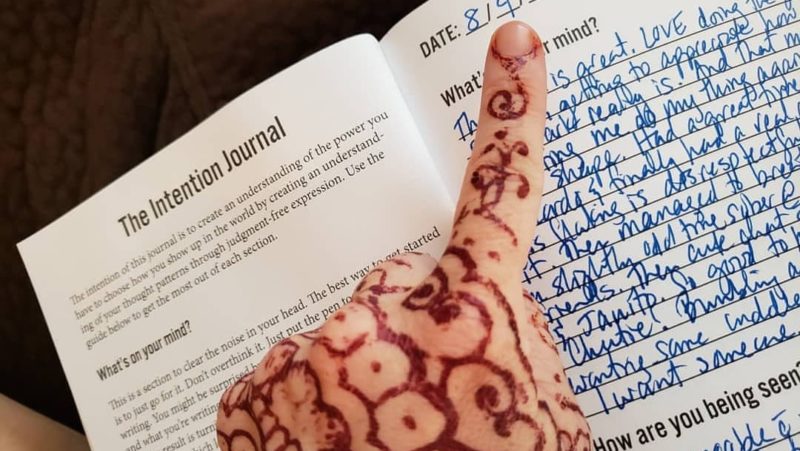Quitting as Self-Care
 A few years ago the term self-care appeared as a means of describing anything that a person does to take care of themselves, like getting a massage, meditating, going for a walk in nature, or taking a relaxing bath in essential oils. All of the above are great ways to improve your physical and emotional health; however, they are often used not as a way to improve health, but to undo the damage caused by underlying stresses and simply restore one’s previous level of health.
A few years ago the term self-care appeared as a means of describing anything that a person does to take care of themselves, like getting a massage, meditating, going for a walk in nature, or taking a relaxing bath in essential oils. All of the above are great ways to improve your physical and emotional health; however, they are often used not as a way to improve health, but to undo the damage caused by underlying stresses and simply restore one’s previous level of health.
Take meditation. It’s a practice that has been used for millennia as a means of trying to reach an enlightened state. But what do we often use it for now? As a means to calm ourselves down after an argument with a significant other or a way to gain a glimpse of equanimity before what we know will be a tough day at work.
In the above instances, meditation isn’t being used to take us to a higher place, it’s being used to get us back to baseline. And then the next day, when our job or our toxic relationships drag us back into sadness or anxiety, we use it again to bring us back up.
This is akin to using Tylenol to treat cancer. Cancer causes pain, so we take Tylenol to relieve the pain. This treats only the symptoms and ensures that we’re going to have to take Tylenol again and again each time the pain arises.
How would we stop that cycle? By curing the cancer.
Similarly, you can’t massage away a bad job and you can’t journal away a toxic relationship. In both instances, you’re merely treating the symptoms.
What’s the cure? Quitting.
Quit the job that’s taken your sanity day after day. Quit the relationships that have led you to the negative self-talk that requires hours of journaling and meditation to sort out.
Because all of the above self-care tools are amazing in their own rights, but are so much more helpful in improving your physical and mental health if you’re starting from a more stable baseline — which requires taking a good look (often through journaling!) at what is disturbing your peace.
So next time something has you anxious or depressed, grab that journal and write down what led to that feeling. Then start analyzing whether the cause can be quit. You may need a job-ectomy, or to have some toxic friends surgically removed from your friend circle.
And after you do, be sure to light some candles, throw some essential oils in a bathtub, and meditate your way to enlightenment — free of whatever was holding you back!
Learn more about strategic quitting for your health… register for Dr. Morski’s upcoming webinar:
Article reprinted with permission from Lynn Marie Morski.
Dr. Lynn Marie Morski is a Quitting Evangelist. She helps people to and through their quits through her book “Quitting by Design” and her podcast Quit Happens, along with speaking and coaching. She is also a board-certified physician in family medicine and sports medicine, currently working at the Veterans Administration. In addition, she is an attorney and former adjunct law professor at Thomas Jefferson School of Law. Visit her website, quittingbydesign.com



 And after I finished medical school and residency in family medicine, I finally got to my sports medicine fellowship, as I had decided I wanted to be a sports doc. However, I got that same feeling when I was doing sports medicine — like something just wasn’t right. Mostly I didn’t like that the hours were somehow both 9 to 5 and nights and weekends, leaving little time for myself.
And after I finished medical school and residency in family medicine, I finally got to my sports medicine fellowship, as I had decided I wanted to be a sports doc. However, I got that same feeling when I was doing sports medicine — like something just wasn’t right. Mostly I didn’t like that the hours were somehow both 9 to 5 and nights and weekends, leaving little time for myself. Here’s another real-life example. I finished yoga teacher training last year, and during my training I had an unlimited membership to the yoga studio. However, shortly after receiving my instructor certification, I started volunteering with a political campaign and didn’t have time to go often enough to make the membership worth the money, which started to stress me out. Yes, you heard that right, yoga was stressing me out.
Here’s another real-life example. I finished yoga teacher training last year, and during my training I had an unlimited membership to the yoga studio. However, shortly after receiving my instructor certification, I started volunteering with a political campaign and didn’t have time to go often enough to make the membership worth the money, which started to stress me out. Yes, you heard that right, yoga was stressing me out.